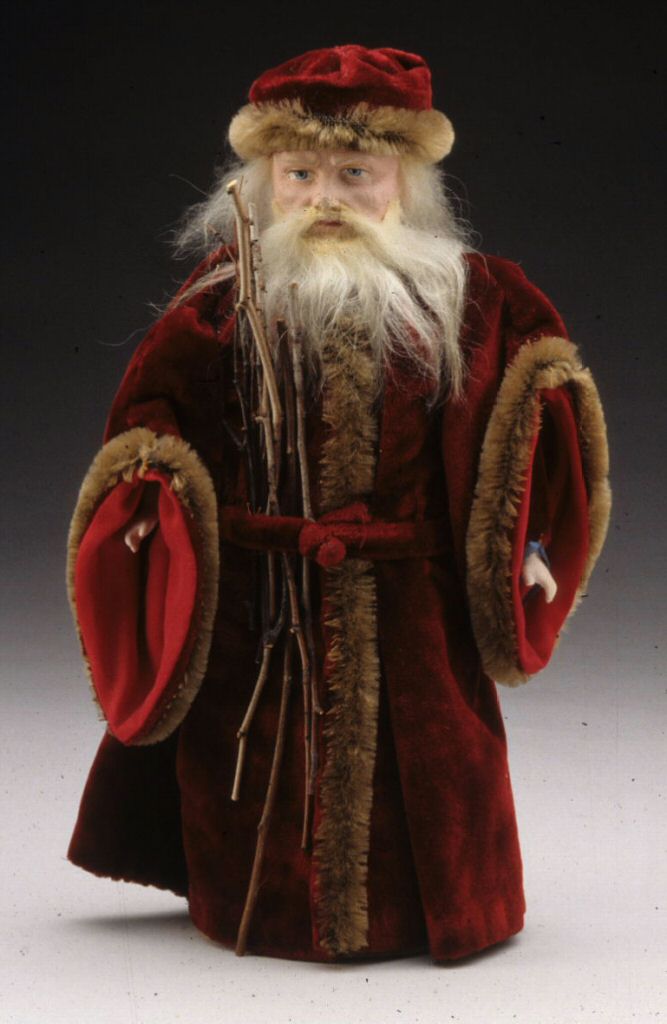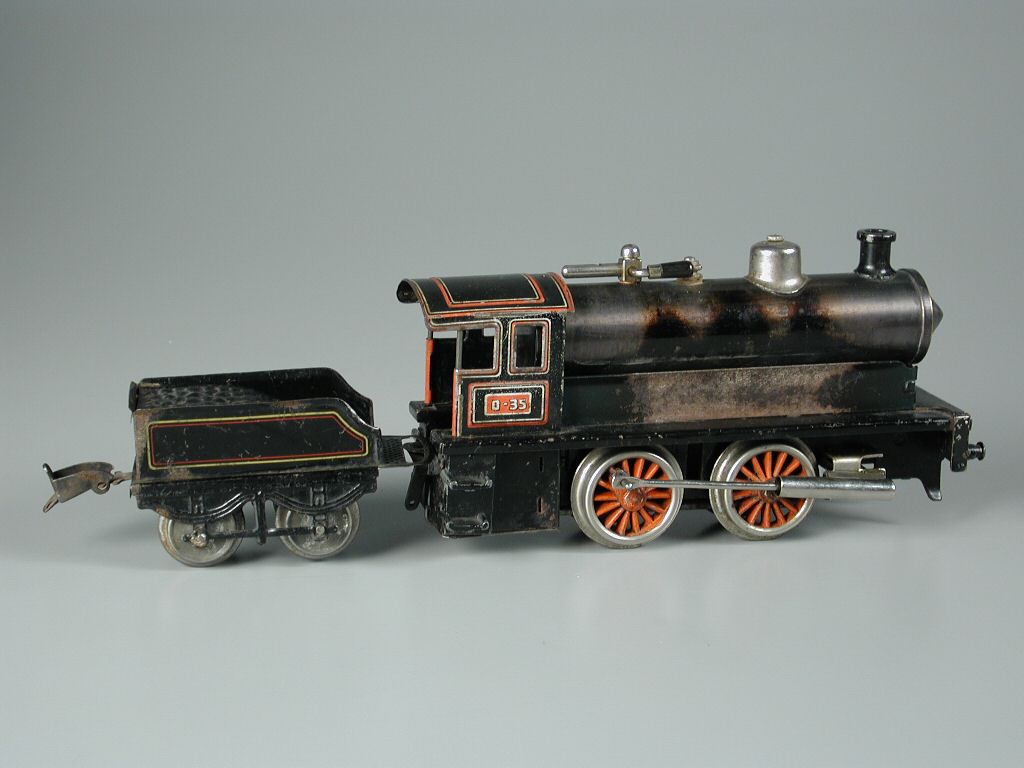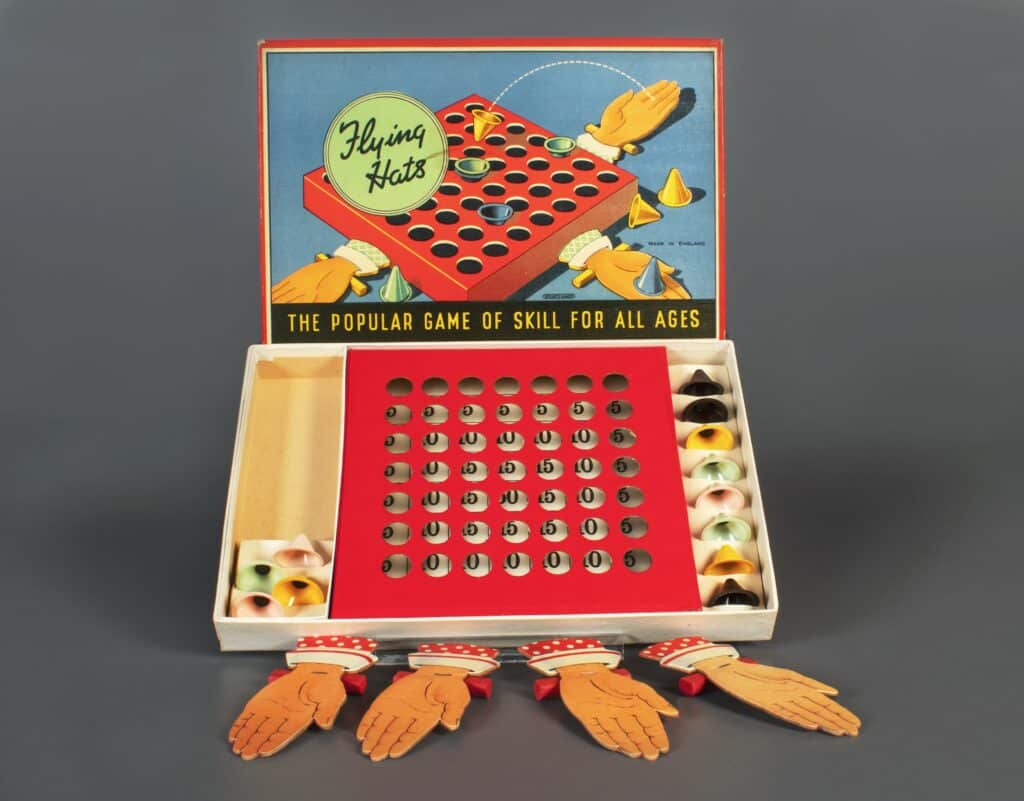Many people know how much impact Jews and Jewish culture have had on entertainment industries like film, television, and comic books. But Jewish designers, entrepreneurs, and inventors have also shaped the world of toys, games, pinball, and video games, and the products of their careers are a huge part of the collections of both The Strong museum and the childhoods of millions in the U.S. and around the world. Those careers go back to the early days of the industrial revolution, a period when German Christmas stories of Santa Claus and gift-giving were spreading around the world and a time when childhood was very different than it is today.
Jewish toy and game designers, entrepreneurs and inventors had a huge impact on both the German industry (the leading producer of toys and games before the World Wars) and the U.S. industry (the leader after 1945).
Toy and Game Companies in Germany
Before the 1800s, a number of German towns and states were well known for centuries for the creation of handcrafted wooden toys. Their products were regarded as the best world-wide.

In the early days of the industrial revolution, Nuremberg became a manufacturing hub with modern (for the time) factories of all types, with toys being a big piece of the output of the region. In some cases, especially early on, the factories would do the rough versions of the toys and send them out to the homes and businesses of artisans. Those individuals would then do the painting and finishing as they’d been doing for centuries while others would move them entirely in house. Even today one of the largest trade shows for toy and game companies, Spielwarenmesse, (Toy Fair) is held there. The Spielzeugmuseum (toy museum) in Nuremberg covers centuries of toy making in the region and across Germany. Coincidently that museum began with the personal collection of a female toy and game enthusiast, as The Strong museum did.
Jewish-Designers, Entrepreneurs, and Inventors of Nuremberg’s Heyday
Nuremberg had a mixed history with its Jewish population from Medieval times (as did most of Europe) but 1852-1933 showed a growth, and a certain level of acceptance of Nuremberg’s Jewish population until the rise of the Nazi government.
The two largest toy and game companies in that time were Gebrüder Bing and J.W. Spear and Söhne.
Gebrüder (Brothers) Bing: The largest toy and game company in the world in the late 1800s to the 1920s was Gebrüder Bing. It was founded by brothers Ignaz and Adolf Bing. Ignaz would later buy his brother out, but the name remained the same. Established in 1863, the company got its start producing tableware and other household items, primarily from pewter and copper. Throughout the company’s history they would manufacture a wide range of household items (including gramophones called “Bingophones” and a U.S. record label Bingola records), but the company’s biggest impact would be as a toy producer.

The Bings began producing toy trains, steam engines, and other mechanical toys in the 1880s. They and added a stuffed toy line, beginning with a bear, in 1907. By 1914, Bing’s toy factory employed 5,000 workers, reflecting the peak of the company’s success. World War I and the embargo against German goods and tariffs imposed on toy imports at the behest of the newly formed Toy Manufacturers of America would heavily impact Bing’s former success. Ignaz passed away in 1918.
Although the company enjoyed a resurgence between the wars, changes in the German economy, competition in the toy train market from American makers Lionel and Ives, all got in the way of the company’s return to its former status. Stephan Bing, the son of Ignaz, left the company in 1927 after leading it for several years. He first founded another German toy and game company, then fled to England in 1932 as the Nazis came to power. By 1933, the company was out of business and its equipment sold to a competitor.
J.W. Spear & Söhne (Sons): Not much is known about the childhood and early adult years of founder Jacob Wolf Spier, the son of a soap maker and dealer in a small town. Like many of the more than a million Germans who left the country in the 1850s due to the poor economic conditions and failed revolution of 1848/1849 Spear was probably struggling to find sufficient employment. He would spend ten years in the U.S., gaining citizenship, a wife and children, and the Americanized spelling of his last name, a common practice imposed by the U.S. government when issuing citizenship. Spear chose to keep the spelling when he moved back to Germany with his German-born wife and two children in 1861.
After joining or founding a few different trading and manufacturing firms, in 1883 Spear established the company that would become J.W. Spear and Sons. It began by making a wide range of products, including games, and then, like Bing, focused entirely on them. The company started in the German town of Furth and went on to manufacture a wide variety of jigsaw puzzles, card games, and board games.
Unfortunately, tragedy would dog the company. Factory fires broke out in 1892 and 1893 (the materials used to lacquer paper products were notoriously flammable and difficult to work with). The financial losses from the fires themselves, related lawsuits from those who owned neighboring buildings around fire damage, and the fallout from a nuisance lawsuit from a business rival proved too much for Spear, who suffered from depression. In despair, he hanged himself in his factory.
Spear’s sons continued the company’s operations, moving the firm to Nuremberg in 1898. It was in this period that two generations of Spears grew the business into a powerhouse, even weathering the World War I period, expanding into picture books and arts and crafts. They successfully opened a British subsidiary, initially to avoid Britain’s high import duties on foreign goods. This would providentially keep the business, and many of the family, alive as the Nazis rose to power.
Starting in 1930 in Nuremberg and elsewhere in Germany, efforts to close or have members of the party acquire, Jewish businesses began. These started with boycotts, progressed to internal and external pressure on the owners to accept “contracts” valuing the businesses at pennies on the dollar as the price for selling them to businessmen in the Nazi party. In 1938, J.W. Spear and Söhne company was “Aryanized,” a process in which the Nazi government seized Jewish businesses of all kinds. Even Ignaz Bing’s tourist cave was seized in this process. Often the original, Jewish owners were sent to concentration camps. The Nuremberg Toy Museum has identified 29 toy and game companies (including Bing and Spear) owned fully or in part by Jewish designers, entrepreneurs, and inventors, that were Aryanized. A total of 865 Jewish-owned business of all types in Nuremberg alone suffered that fate.

While a number of the Spear extended family were able to get out of the country, at least six died in different camps during the war. Once taken over, Spear games and other companies dedicated themselves to making war-themed toys and games supporting the Nazi war effort or reworking existing products with that same objective. For example, a variation of Spear’s extremely popular flying hats became “Bombs on England.” Other previously Jewish-owned toy and game companies also created products in support of the Nazi effort.
The Spear family was one of the few to regain its German companies after the war. Spear rebooted, rebuilt, and transformed itself into an active player for decades to come. At one point the firm held the rights to Scrabble distribution outside of the U.S. and became largely responsible for the Scrabble tournaments that still run today. Nuremberg’s Haus de Spiels (House of Games) is the home of the Spear Archives with more than 1,500 games and related business documents. Located just a few blocks from the toy museum, it also hosts events for the public and for the independent game developer community in the city.
By Stephen Jacobs, Scholar-in-Residence at The Strong and a Professor of Interactive Games and Media at the Rochester Institute of Technology
 Hours 10 a.m.–5 p.m. | Fri. & Sat. till 8 p.m.
Hours 10 a.m.–5 p.m. | Fri. & Sat. till 8 p.m.